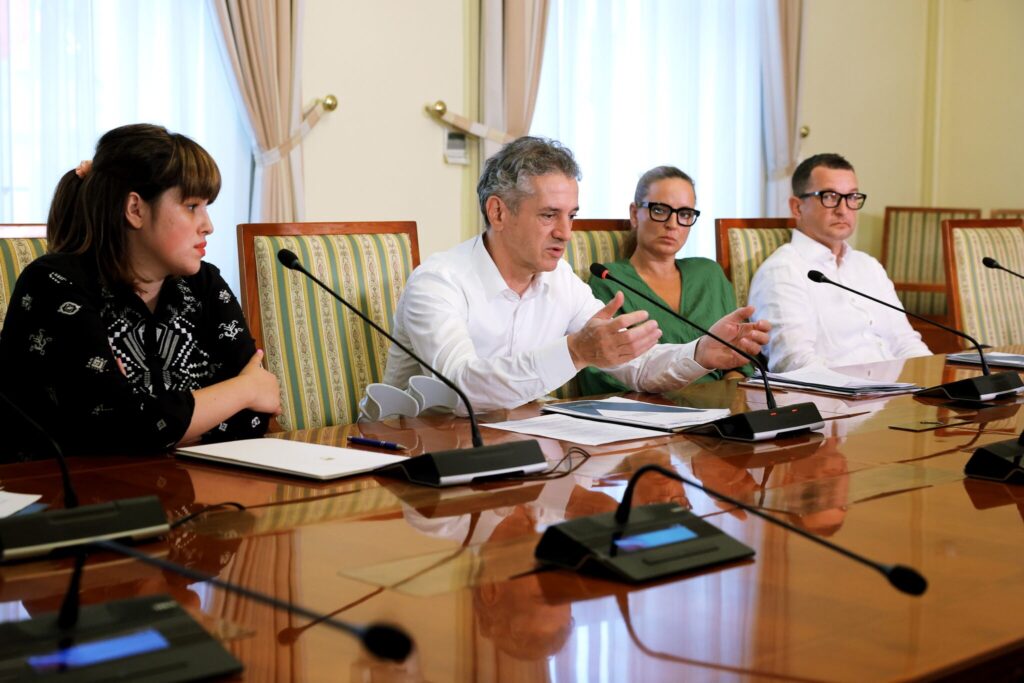The Strategic Council for the Prevention of Hate Speech has presented new recommendations to tackle hate speech at a press conference on Wednesday. The recommendations, which are about the media and social media, go as far as to suggest an intention to censor. This part of the measures was presented at the press conference by Marko Milosavljević, a professor at the Faculty of Social Sciences.
“Slovenia is trapped in legislation dating back to 2005. It is ineffective and outdated. We propose to extend the responsibility of the media to their social media profiles. We have also addressed the recommendations that journalists should be protected,” he said at the press conference.
However, Milosavljević’s statement has already drawn strong criticism online. “Don’t ignore this, look at this tweet from the Government of the Republic of Slovenia. While the mainstream media is serving you a CNN propaganda documentary about Nika Kovač, the same Nika Kovač, together with the government of Robert Golob, and radical political activists under the guise of a profession, like Milosavljević, are planning a chilling change in media law that would sanction media outlets for “hateful” comments (tweets or Facebook posts) on their social media profiles,” wrote the investigative journalist Bojan Požar.
“In short, should a media profile on Twitter or Facebook take responsibility for everything that someone else tweets or otherwise posts under that profile?! Which is, of course, a harbinger of total censorship,” Požar wrote.
Urgent points, preventing a scandal, …
Nika Kovač then presented recommendations for the education sector. One of the main recommendations highlighted was the “urgent points” for head teachers. They could contact these points if hate speech occurs in schools. The recommendations mention the strengthening of school counsellors and addressing violence on social media in the school space as well.
The drafters of these proposals are also bothered by online content that causes public disgust. Katarina Bervar Sternad presented proposals to censor this content. A key recommendation in this strand is to extend the definition of hate speech to include causing public uproar or disgust. “It would also be more appropriate to address some cases of hate speech in criminal proceedings,” she said, reports the Slovenian Press Agency.
Prime Minister Robert Golob, who also spoke at the press conference, is also enthusiastic about censorship. He expects systemic changes to the legislation to happen in the coming months, although he was quite reluctant to make any promises on implementation, probably due to his past experience.
Gal Kovač


